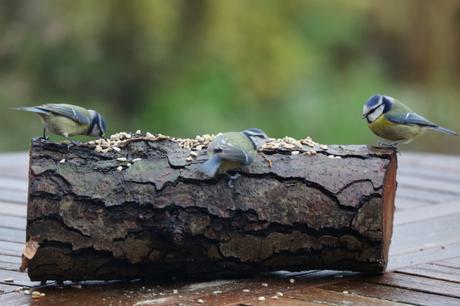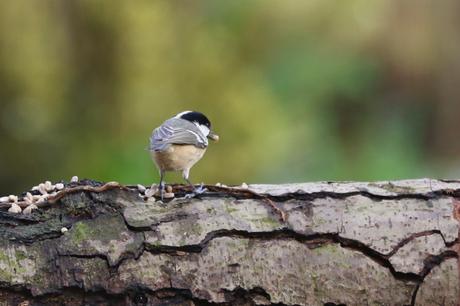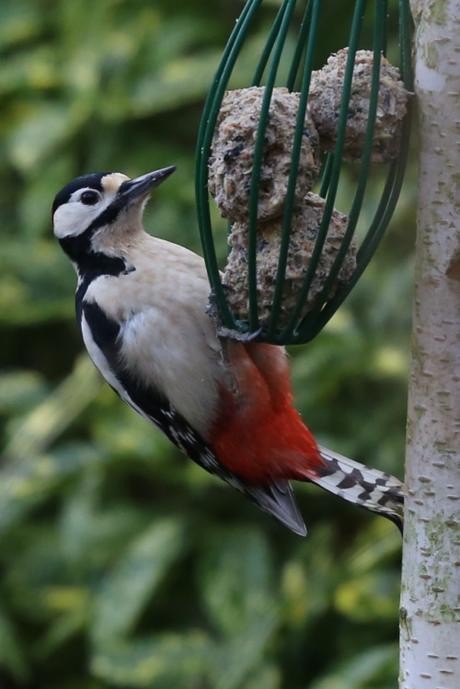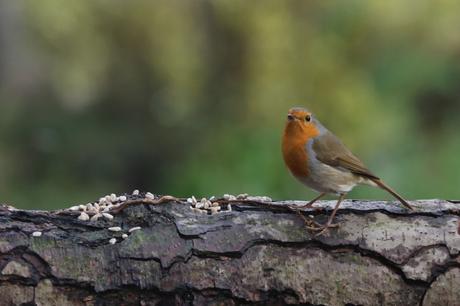This weekend, saw the 37th annual RSPB Big Garden Birdwatch, the increasingly popular citizen science opportunity to record visiting garden birds.

As always, lots of Blue Tits made an appearance and enjoyed the Sunflower hearts
The RSPB uses the data to monitor long term bird populations. With a strong marketing campaign to encourage folk to take part, participation rates are already up on last year. Analysed results are published in March. The RSPB encourage schools, groups and individuals to give up one hour and count visiting garden or outdoor space birds and in recent years have included mammals and reptiles too. They are as interested in whats not being seen as the birds that do visit.

Identifying a Coal Tit – white stripe on back of head and two small white bars on wings
As gardeners we can be in tune with our natural world and understand how our wildlife is faring in a world of diminishing habitats. Largely due to industrialisation, pesticide use on our farmland and gardens which destroy the invertebrates at the source of the food chain and increased house building. We will have a better chance to understand what man has done and what we could do to help mitigate or prevent further destruction to our living planet. We need to co-exist, not exist at the expense of other creatures.

Male Great Spotted Woodpecker making an appearance in the allotted hour
Climate change, brought home this year by the unseasonable mild winter and dreadful flooding in the UK, not only threatens the homes and livelihoods of people but the habitat, shelter and foraging opportunities for our wildlife too, by taking part in a citizen science project we can play a small part in helping our scientists to understand more of whats going on.

Robin, one of two that showed up for the Big Garden Birdwatch hour
Many of our birds are now in sharp decline, 60 per cent of UK wildlife species monitored for the State of Nature report have declined over the last 50 years. I cannot imagine wanting to garden without hearing birdsong or being distracted by a Bee at work, those simple pleasures will disappear along with us too, if we continue to destroy our natural world.
